Towards 100% renewable cities: collaboration in action in Besançon
Discover how cities are turning ambition into action through clean heat strategies and community energy: insights from Energy Cities’ Annual Forum.
As the European Union sets its sights on becoming climate neutral by 2050, cities playing a central role in reimagining and implementing local energy systems – but they cannot do it alone. This transition requires close collaboration between municipalities, local stakeholders, national authorities and citizens to ensure a fair and inclusive energy transition that benefits everyone.
During our Annual Forum last week in Besançon, Journey 2 focused on the role of innovative partnerships in advancing local energy transitions. Site visits and workshops highlighted how collaboration is turning climate goals into concrete action.
Heating and cooling strategies for a fossil-free future
Heating and cooling were at the heart of this journey, which began with a site visit and presentation of Besançon’s district heating projects. Participants had the opportunity to visit the Planoise wood-fired boiler plant, a key facility in the city’s heating network. Today, it supplies around 14,850 households, with over 80% of its energy coming from renewable sources. The city has set a goal of becoming 100% renewable by 2050.
‘We would like to be 100% powered by renewable energy in Besançon by 2050’
Lorine Gagliolo, Vice President for environment, energy and sustainable development – Grand Besançon Métropole
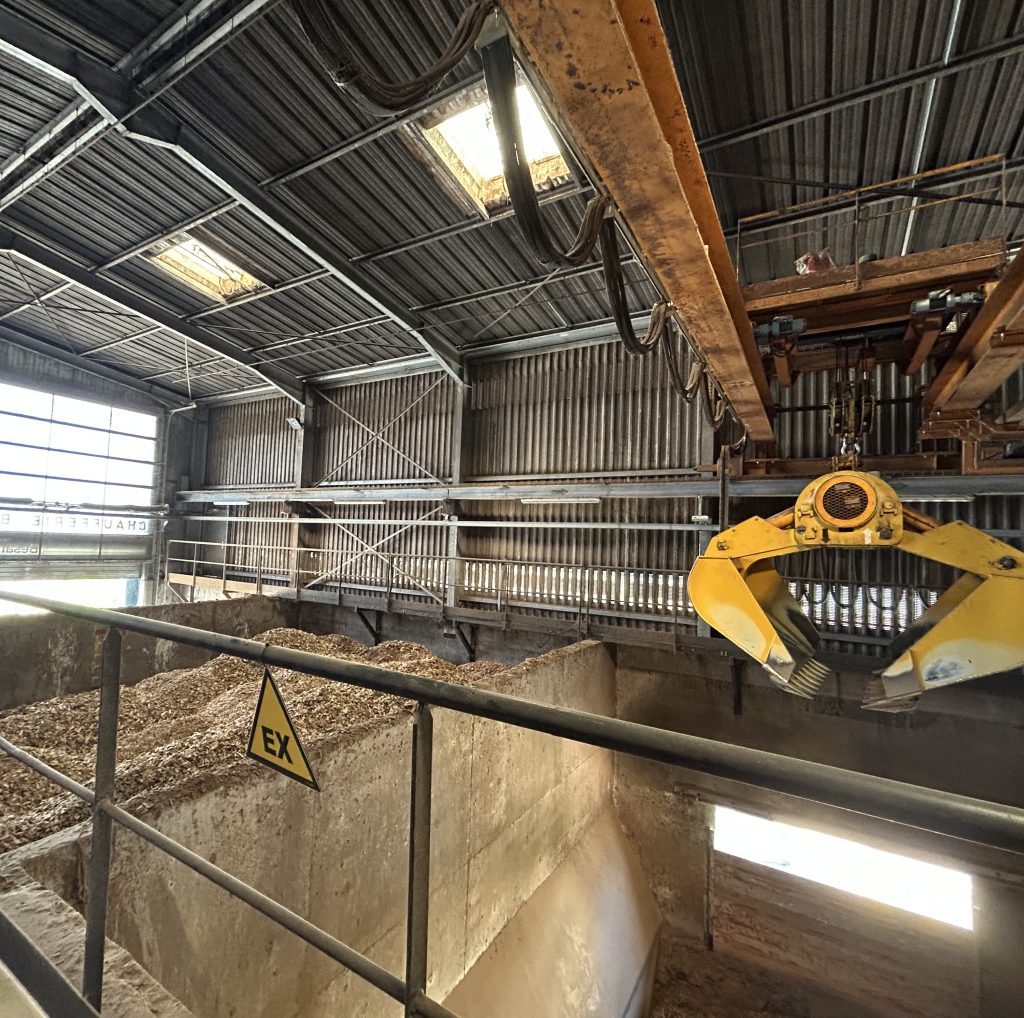
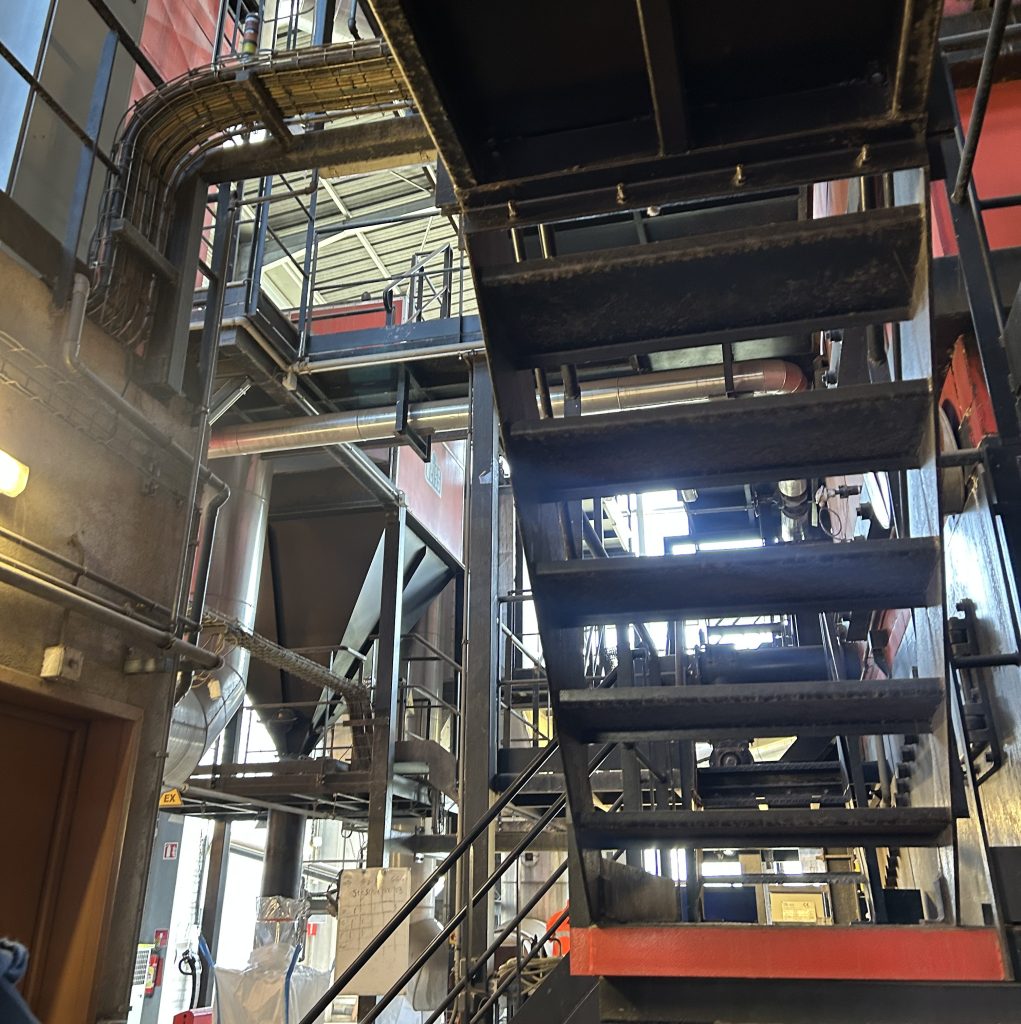
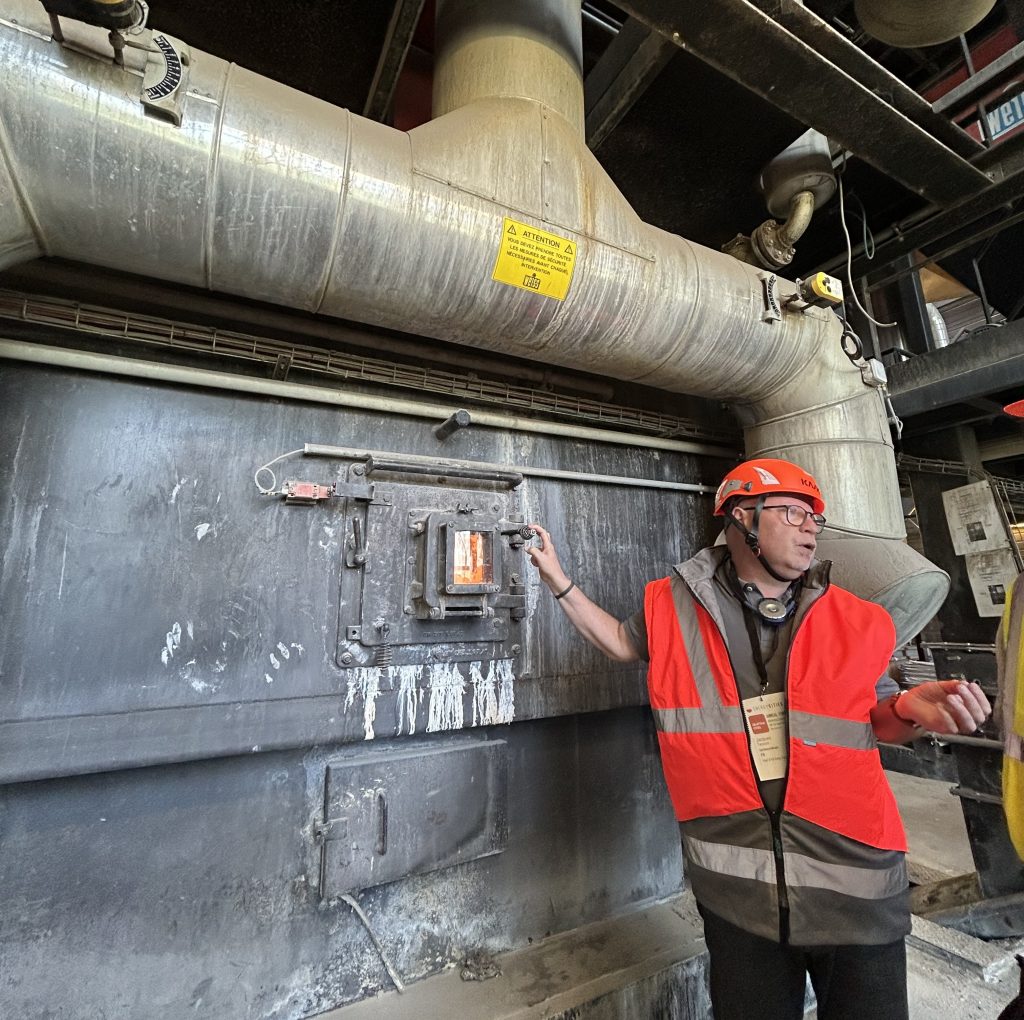
But that’s not all. Besançon’s strategy also includes the Port Douvot wastewater treatment plant, which has maintained a positive energy balance since 2022 thanks to a mix of photovoltaic electricity, geothermal energy and biomethane production – a strong example of how multi-source approaches can deliver significant benefits.
The city of Annecy also presented its diversified heating and cooling strategy during our testimonial workshop. Thanks to deep geothermal energy, biomass and water, Annecy’s plan avoids dependence on a single energy source. While its district heating system was originally based on a waste incineration plant built in the 1970s, it has since expanded with biomass-powered networks, including a new 30 km extension. The city is also exploring new models such as a lake water-based heat pumps and deep geothermal energy.
Supporting local action
During the afternoon’s testimonial workshop, participants explored local and national strategies and key success factors in driving a just transition.
How can national frameworks better support local authorities in developing heating and cooling plans ? One example was the REDI4HEAT toolbox, a practical resource to help cities navigate technical, financial and regulatory barriers to renewable heat. Projects like ESCALATE also showed how local authorities can access concrete tools and knowledge to design effective heating and cooling plans that reduce energy use and support environmental goals.
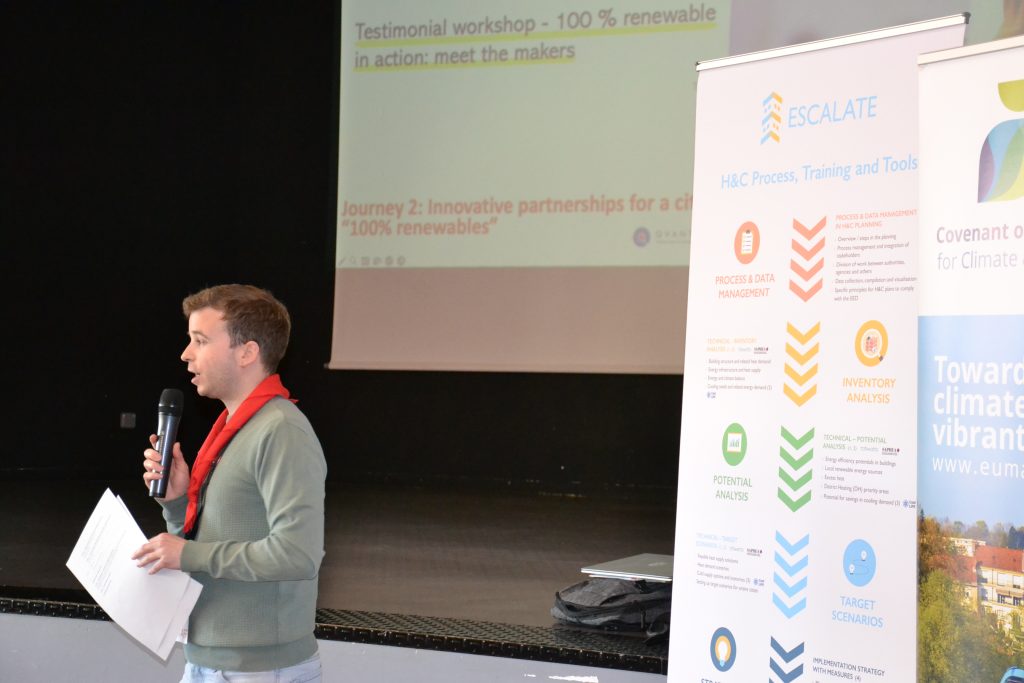
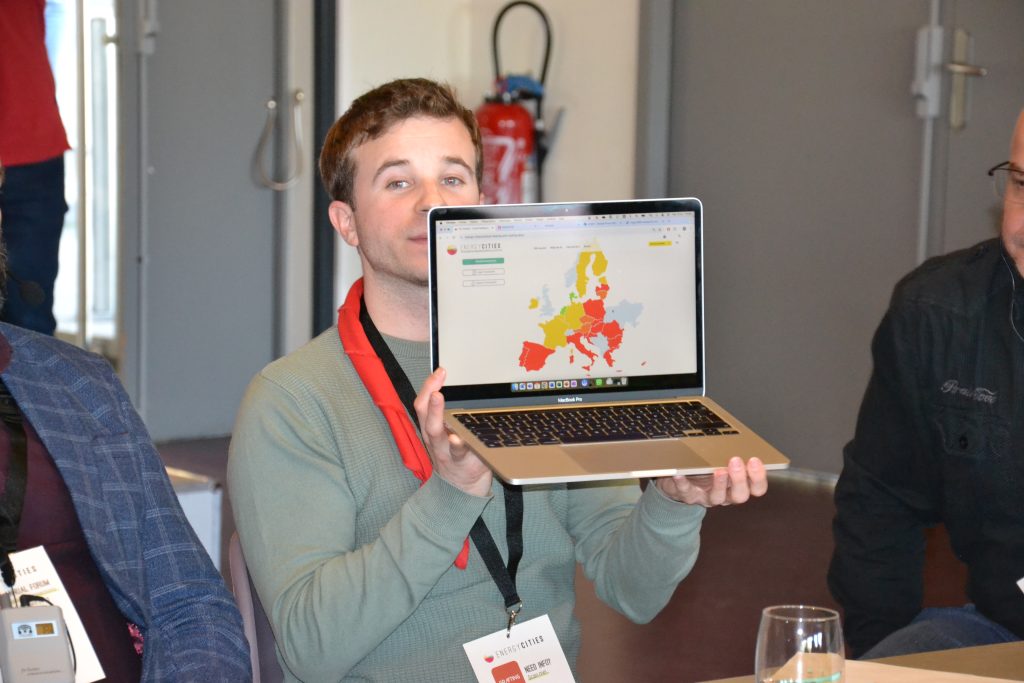
There is not doubt that local authorities need strong technical and regulatory support from national and regional levels to accelerate the transition and ensure projects are bankable, scalable and socially accepted.
The power of collaboration
Throughout the discussions, one message came through clearly : collaboration is key. Projects need more than just funding and technical solutions, they also require trust and participation from citizens and local stakeholders.
Several participants raised the challenge of citizen engagement and acceptance, as energy and climate projets often face resistance when their benefits aren’t clearly understood.
‘In Besançon, we have a major road congestion issue that makes many citizens sceptical about our initiatives. They often don’t understand the benefits of our projects and how they are linked to their daily lives.’
Lorine Gagliolo, Vice President for environment, energy and sustainable development – Grand Besançon Métropole
Yet promising models are emerging. One inspiring example shared was La Fruitière à Énergies—a community energy initiative where residents co-develop renewable energy projects. By 2025, the initiative brought together 335 members and supported 110 local projects in the Besançon area. In this way, community members are more than just consumers, they are becoming real stakeholders and ambassadors of the energy transition.
From the Netherlands, Avi Ganesan, Director of Energy Transition at Resourcefully, on behalf of the City of Arnhem, echoed a key question many are grappling with:
‘How can we motivate people to take part in the local energy community?’
To support our members and participants in finding answers, the journey included a collective intelligence workshop. Participants tackled real-life challenges, from financing and citizen outreach to policy coordination. It created a space for mutual learning, exchange of ideas, and co-creation of solutions.
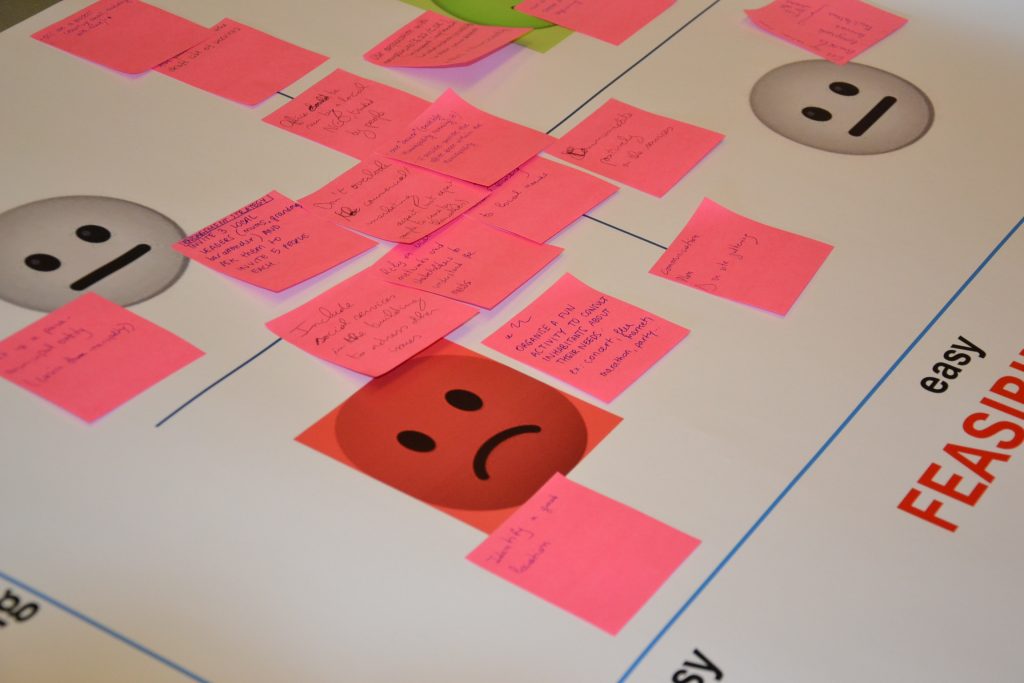
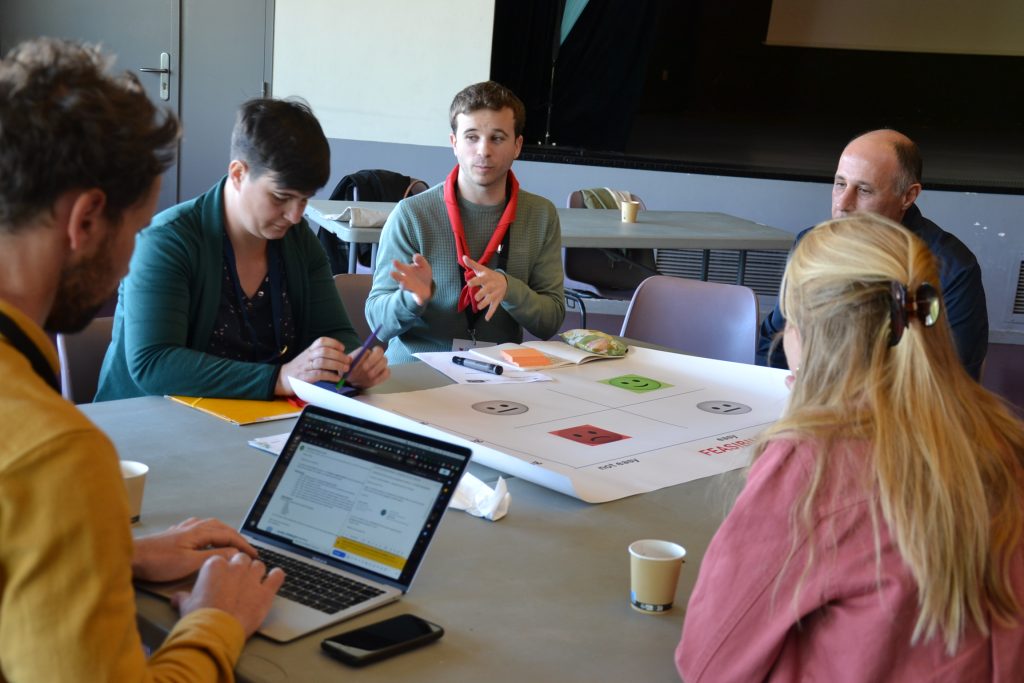
The journey reaffirmed that innovative partnerships across local, national, and citizen levels are essential to making 100% renewable cities a reality.
Sponsored by Qvantum


